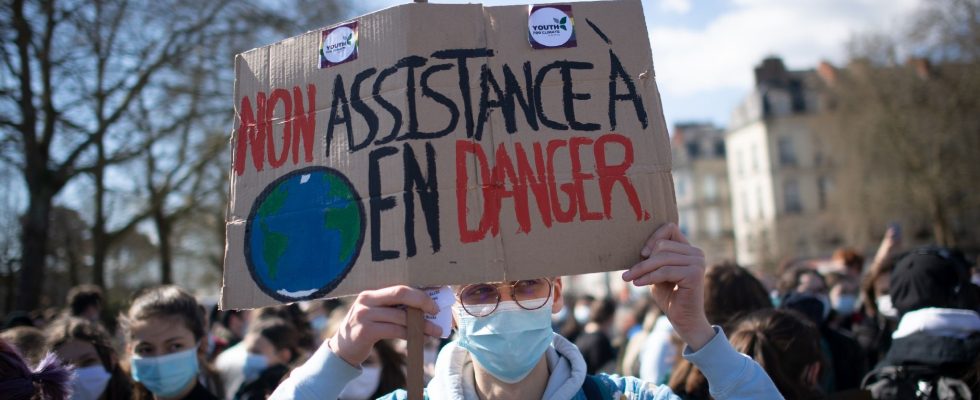Eight years of work, thousands of studies, and one ambition: to enlighten political decision-makers on the paths to follow to contain and prepare for climate change. The Intergovernmental Panel on Climate Change (IPCC), has reached the end of its mission, and published this Monday, March 20 the summary of the three sections of its 6th report. Since 2015, these climate experts have been gathering scientific knowledge on the state of ecosystems, the way in which our human activities are upsetting the global thermostat as well as the environment, and the adaptation solutions to be put in place.
Presented as a “practical guide to defusing” the climate time bomb, this report intends to provide the keys to survival for an increasingly threatened humanity. “This synthesis has the advantage of integrating the three components, and it emphasizes why we must act and how to do it”, explains Jean-Charles Hourcade, director of research emeritus at the International Center for Research on the Environment. and development, and co-author of this synthesis. The opportunity for scientists to drive the point home on the responsibility of human activities in climate change, and reiterate the urgency to act to contain it. But is this scientific roadmap followed by the States?
In France, since 2019, the conclusions of the IPCC have been reflected implicitly in the proposals of the Citizens’ Convention on the climate and the measures adopted under the climate and resilience law (reduction in energy consumption, reduction in car travel, or energy efficiency of housing, etc.). But it is only fairly recently that the government has clearly relied on the work of the IPCC in anticipating future events. Its third national plan for adaptation to climate change is based on two warming scenarios in France. One is “optimistic”, and predicts a warming of 2°C (the increase in temperature has already reached 1.7°C in France compared to the pre-industrial era according to Météo France), the other is judged ” pessimistic” and is based on a 4°C increase in average temperatures in France by the end of the century.
Adaptation gaps
“It is directly a variation of the adaptation methodology proposed by the IPCC: that is to say, start by understanding the vulnerabilities of the territory, and preparing for all possible climatic conditions”, underlines Vivian Dépoues, head of Adaptation to climate change project, within the Institute for Climate Economics (I4CE). But beyond this recent example, the work of scientists is still struggling to translate concretely into political adaptation measures, he notes. “The implementation of adaptation is progressing, however very often it is limited to its most incremental forms: we do a little better what we already do, while having recourse to technological solutions”.
IPCC scientists make the same observation. “Adaptation planning and implementation has progressed across sectors and regions, with proven benefits and varying effectiveness,” the latest report notes, but despite this progress, “there are gaps in adaptation and they will continue to grow at the current rate of implementation”. What agriculture for the future, how to protect the coasts, or how to fight against fires? These questions, which are at the heart of reflection on adaptation in a warming world, do not yet lead to precise answers. “Adaptation is how to think about smart solutions to put in place for the future, and we must ramp up quickly in this area”, confirms Jean-Charles Hourcade.
“He will have to transform”
Until now, the depth and scale of the transformations of the economic system to be implemented have generated a certain reluctance on the part of the States. Very often, this translates into a gap between the declarations of decision-makers and the reality of their actions. “The administration is doing what it can, but a gap persists between announcements and implementation,” concedes a familiar with climate policy discussions.
This latest report on the climate comes at the end of a cycle which has seen the IPCC impose itself both as an essential element of our awareness, but also as an imposing diplomatic machine powerless to bring about the necessary transformations. Whose fault is it ? As publications have been published, scientists have shown themselves to be more and more specialized on the question of the policies to be implemented, but without ever issuing recommendations, or settling the debates which animate transition policies. This strategy seems to be out of breath, judge “personally” Jean-Charles Hourcade, who concludes: “The IPCC report provides a framework, but it will have to change, if it wants to gain traction” .
